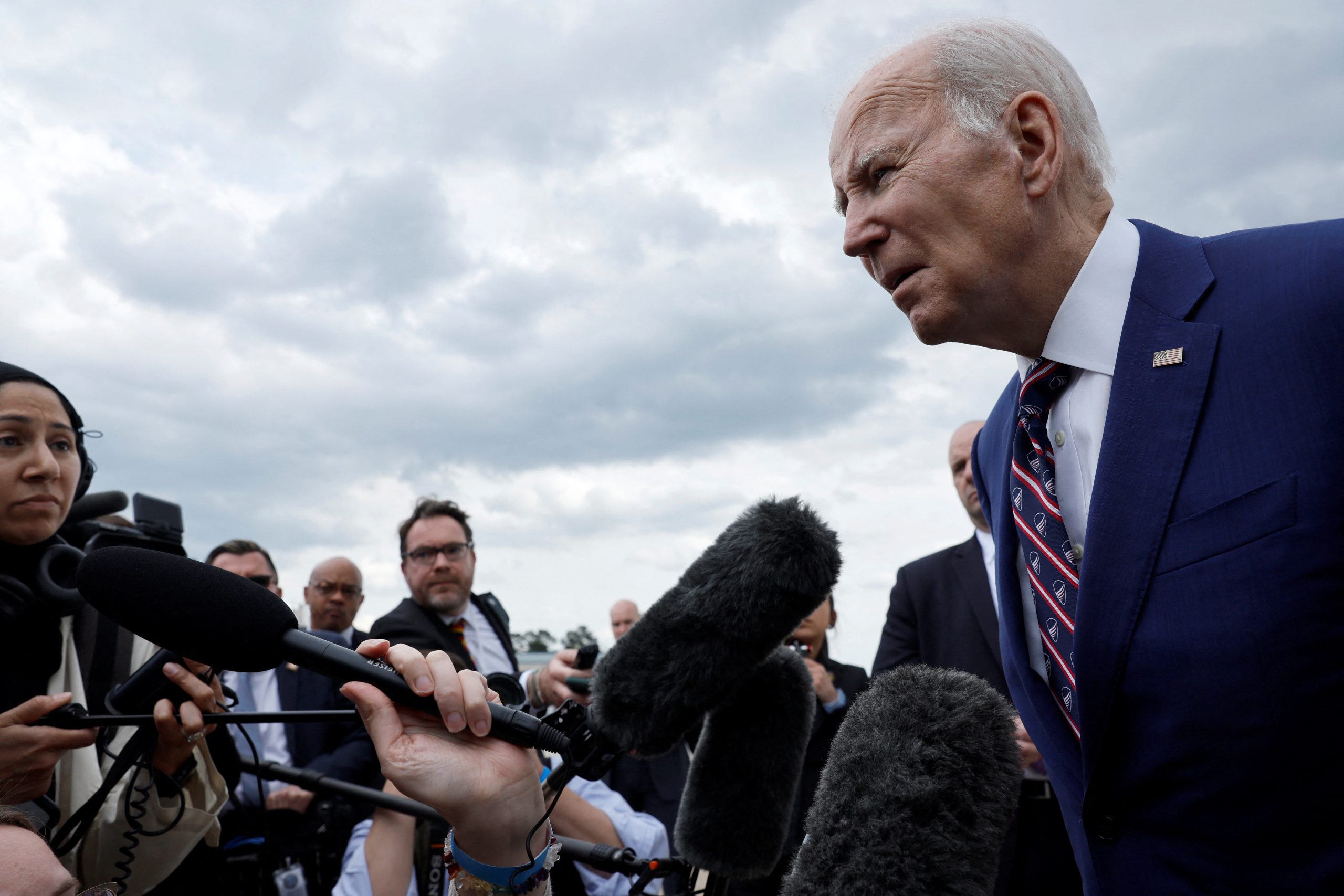
Willie R. Tubbs, FISM News
[elfsight_social_share_buttons id=”1″]
President Joe Biden, evidently concerned that a recently introduced, Republican-backed energy bill could have the support it needs to clear Congress, has preemptively promised to veto an act that would relax some restrictions on the fossil fuel industry.
Monday, in a memo about administrative policy, Biden pledged to oppose H.R. 1, the Lower Energy Costs Act (or LECA), primarily on the grounds that it would harm his green energy initiatives.
“It would raise costs for American families by repealing household energy rebates and rolling back historic investments to increase access to cost-lowering clean energy technologies,” the memo reads. “Instead of protecting American consumers, it would pad oil and gas company profits — already at record levels — and undercut our public health and environment.”
According to a release from bill sponsor Rep. Steve Scalise (R-La.), LECA is meant to quickly bring about a reduction in energy prices, which Scalise argues is sorely needed, by fostering increased domestic energy production, reforming permits, weakening green-energy initiatives, and addressing supply-chain issues.
“Our Lower Energy Costs Act would unleash American energy production & lower gas prices for our families,” Rep. Randy Feenstra (R-Iowa) tweeted Monday. “Why would President Biden threaten to veto this? His commitment to his Green New Deal agenda is stronger than his commitment to the American people.”
Our Lower Energy Costs Act would unleash American energy production & lower gas prices for our families.
Why would President Biden threaten to veto this?
His commitment to his Green New Deal agenda is stronger than his commitment to the American people.https://t.co/ouXy584R7g
— Rep. Randy Feenstra (@RepFeenstra) March 27, 2023
Democrats and Republicans agree that the primary controversy over LECA is its threat to Biden’s green policies. The Biden administration has been open about this position.
The memo reads,
H.R. 1 would also empower big companies to skirt the Clean Air Act by lifting pollution control requirements, weaken emissions requirements and worker protection for refineries using toxic chemicals, modify requirements under the bipartisan Toxic Substances Control Act for determining the safety of chemicals used in the energy sector, and repeal $1.5 billion in investments focused on curbing methane leaks that harm surrounding communities.
Republicans in the House have not been deterred by Biden’s veto promise. A vote on the LECA is scheduled for this week and the bill will almost certainly make it to the Senate.
Unlike so many other Republican-backed bills, the Senate is likely to take this matter up, and there is a distinct possibility enough moderate Democrats will emerge from fossil fuel-rich states to give LECA a fighting chance in the upper chamber, therefore necessitating a veto.
Were Biden to make good on his threat, it would mark just the second veto of his presidency. It would also provide ammunition to Republicans who, in the run-up to the 2024 election, will be eager to dispute Biden’s portrayal of himself as a man eager to cooperate and unify.
REPUBLICANS MAKE RUN AT STUDENT DEBT PLAN
Although far less likely to require a presidential veto, Republicans in the House and Senate are also attempting to create a law that would permanently end Biden’s student loan forgiveness program.
Sens. Joni Ernst (R-Iowa) and John Cornyn (R-Texas) along with Reps. Bob Goode (R-Va.) and Bill Cassidy (R-La.) are leading 36 other conservatives in the effort.
“No American should be forced by the government to pay someone else’s debt,” Goode tweeted after introducing the bill in the House. “That’s why I’m leading a resolution with @SenBillCassidy to revoke President Biden’s ability to take [Americans’] hard-earned money and bail out gender studies graduates.”
Goode, less known on the national stage than some of his conservative colleagues, has been gaining some notoriety of late for his outspoken opposition to Biden’s spending plans.
“President Biden makes Jimmy Carter look competent and Barack Obama look moderate,” Goode said in a press conference Tuesday. “It’s time to cut spending back to pre-COVID levels and put the country back on a path of fiscal responsibility.”
President Biden makes Jimmy Carter look competent and Barack Obama look moderate. It's time to cut spending back to pre-COVID levels and put the country back on a path of fiscal responsibility. pic.twitter.com/Hu3y7UXeTc
— Congressman Bob Good (@RepBobGood) March 28, 2023
Although Goode and Cassidy’s bill is expected to sail through the House, there is little hope in the Senate, where Democrats can prevent the matter from being brought up for a vote or defeat it by a simple majority.
Conservatives’ best hope for overturning the Biden student debt forgiveness plan remains the Supreme Court, which recently heard oral arguments regarding Biden’s program after a lower court froze the program in November.
